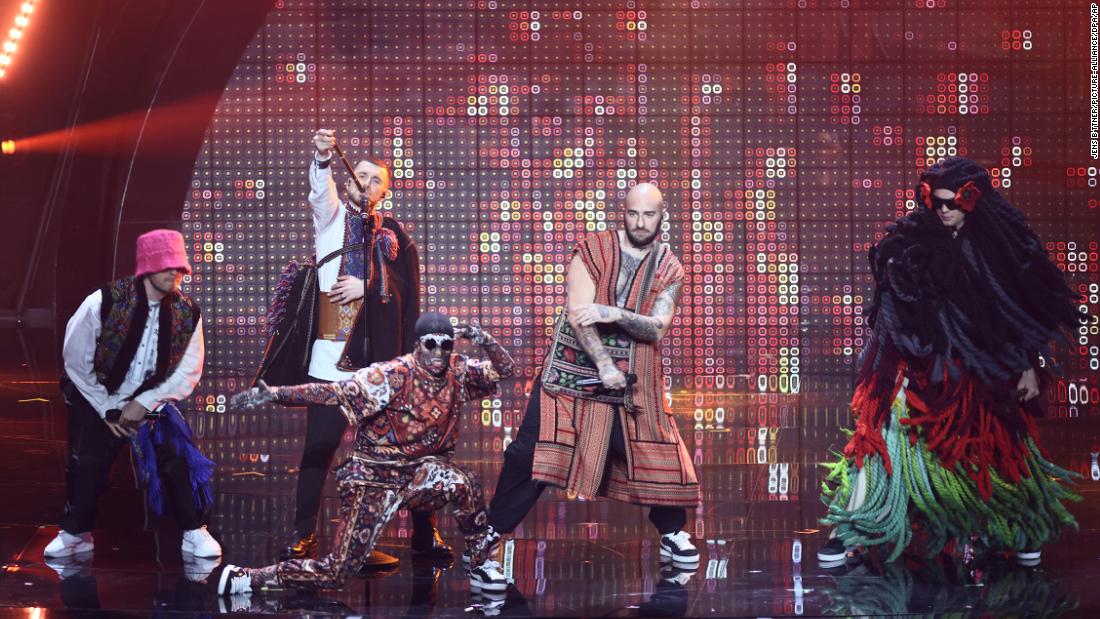The Grand Final is set to take place Saturday, following the second of two semifinals, which is set to happen on Thursday in Turin, Italy.
After Tuesday’s competition, musicians representing the following counties are still in contention: Switzerland, Armenia, Iceland, Lithuania, Portugal, Norway, Greece, Ukraine, Moldova and the Netherlands.
Back in February, organizers for Eurovision caved to public pressure and decided that Russia would not be allowed to compete in the competition. The European Broadcasting Union, which organizes the contest, had initially decided it would allow a performer to represent the country, despite the country’s invasion of Ukraine. It changed course less than 24 hours later.
Ukraine and others had petitioned the European Broadcasting Union to bar Russia from participating.
Kalush Orchestra had finished second in the national Ukraine final but won the public vote. They were ultimately selected to replace Alina Pash, who dropped out of the contest amid controversy over a trip she made to Russia-controlled Crimea.
Seventeen countries performed in the first round of semis and 18 are set to take the next stage.
In the final, the qualifying 20 countries will perform along with the so-called Big Five (France, Germany, Italy, Spain and the United Kingdom), the countries that gain automatic entry into the final. The host country is also given a spot in the final, but this year’s host, Italy, was already included.
.
